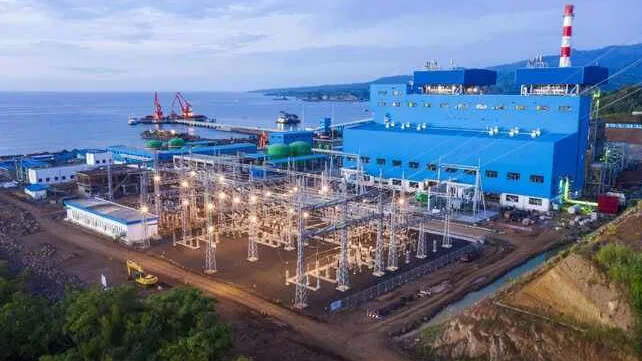
TBS Energi's contribution to Indonesia's 23% renewable energy goal
TBS Energi helps Indonesia hit 100MW installed capacity target by 2025.
The Indonesian government has set an ambitious goal of reaching a 23% renewable energy (RE) contribution to its energy mix within the next two years.
At present, renewables account for only 12%-13%, so doubling this share is a significant challenge. TBS Energi has embraced this goal as a shared commitment, aligning it with their contractual obligations to PLN (State Electricity Company) for project completion by 2024.
Nafi Achmad Sentausa, Senior Vice President of Strategic Initiatives at TBS Energi, believes that Indonesia's commitment to renewables reflects a growing emphasis on sustainable energy sources. PLN’s Electricity Supply Business Plan (RUPTL) for 2021-2030 sets an even higher target of 51% renewable contributions, equivalent to 20 gigawatts.
Originally a coal mining company, TBS Energi transitioned to power generation in 2016. Their success story revolves around Steam Power Plants (PLTU). “We now operate two PLTUs with a combined capacity of 200 MW in Sulawesi, operational since December, 2021,” said Sentausa in an interview with Asian Power.
Sentausa revealed that Steam Power Plants have long been the backbone of Indonesia’s electricity generation and that the technology used for it has stretched for decades. And from an economic standpoint, coal-fired PLTUs require only 4 cents to 5 cents per kilowatt hour (kWh) of electricity produced.
DNA to complete the project
Sentausa asserted that TBS Energi has the DNA to execute the project. “From the mining area we have started to become greenfields; then from the 200 MW PLTU, we have also started to become greenfields,” he said.
Sentausa said his team successfully completed the PLTU project, starting with no official documents.
But they eventually secured the necessary permits out of sheer determination and carried out 80% of the work during the challenging years from 2016 to 2021, which included the pandemic period in the tail-end.
In 2020, TBS Energi through its subsidiary, PT Toba Bara Energi, increased its business portfolio in the field of renewable energy (RE) by acquiring ownership in PT Adimitra Energi Hidro which is developing a 2x3 MW Mini Hydro Power Plant (PLTM) project in Lampung province.
This marks the period of TBS Energi’s entry into the RE sector and its seeking various opportunities to develop RE power plants such as its acquisition of PT Bayu Alam Sejahtera, which is also exploring the development of a Wind Power Plant (PLTB) project in East Nusa Tenggara (NTT) Province.
“In 2022, we achieved an important milestone in renewable energy projects. In the Mini Hidro development project in Lampung, we have achieved a progress rate of 30%,” said Sentausa.
This year, he said they are also reviewing plans to develop a wind power project in East Nusa Tenggara and a floating solar power project in Batam, as well as other alternative renewable energy projects.
“So, the target of installed capacity of 100 MW in 2025 remains according to plan,” he added.
Floating solar is the flagship
One of TBS Energi’s standout projects is the upcoming 40 MW floating solar installation in Batam, currently in the business development stage. Sentausa said the goal is to launch this unique project by the end of this year.
What sets this project apart is its location above a reservoir. He explained that whilst conventional solar power requires 1 hectare for 1 MW, their innovative approach overcomes land limitations, providing a distinct economic advantage without land acquisition.
Looking forward, the company has a comprehensive renewable energy pipeline, encompassing hydro, wind, solar, biomass, and waste-to-energy projects, all aimed at achieving carbon neutrality by 2030.
Sentausa reaffirmed TBS Energi’s commitment to fund future renewable endeavours by recycling revenue from their coal business, aligning their strategy with sustainability goals.
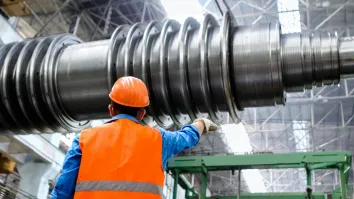
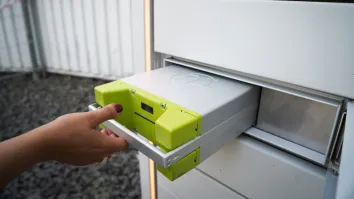
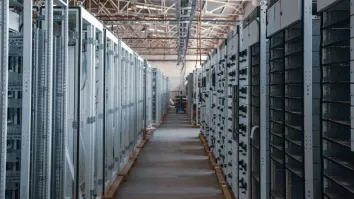
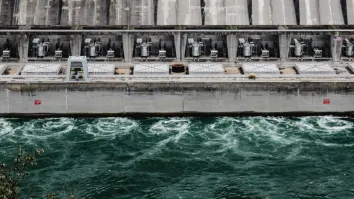













 Advertise
Advertise







